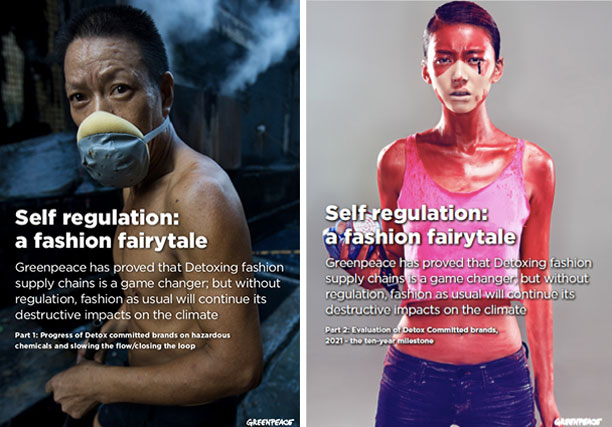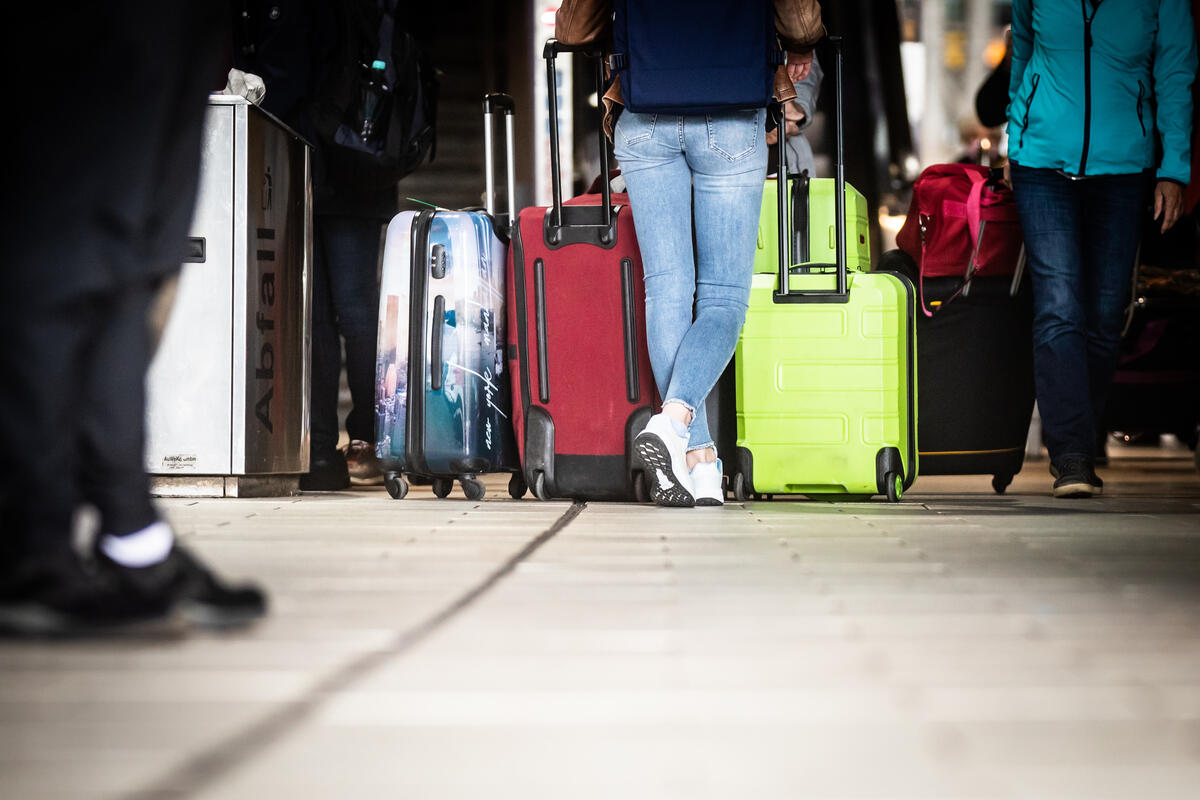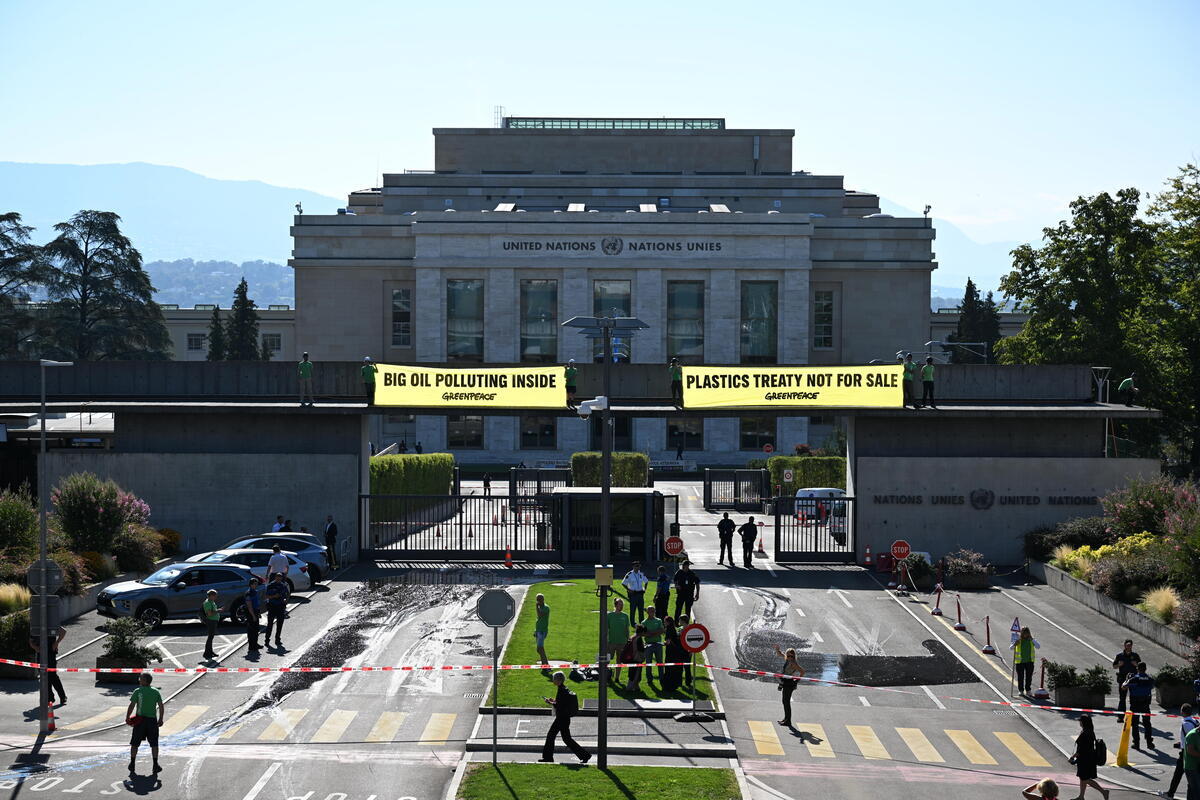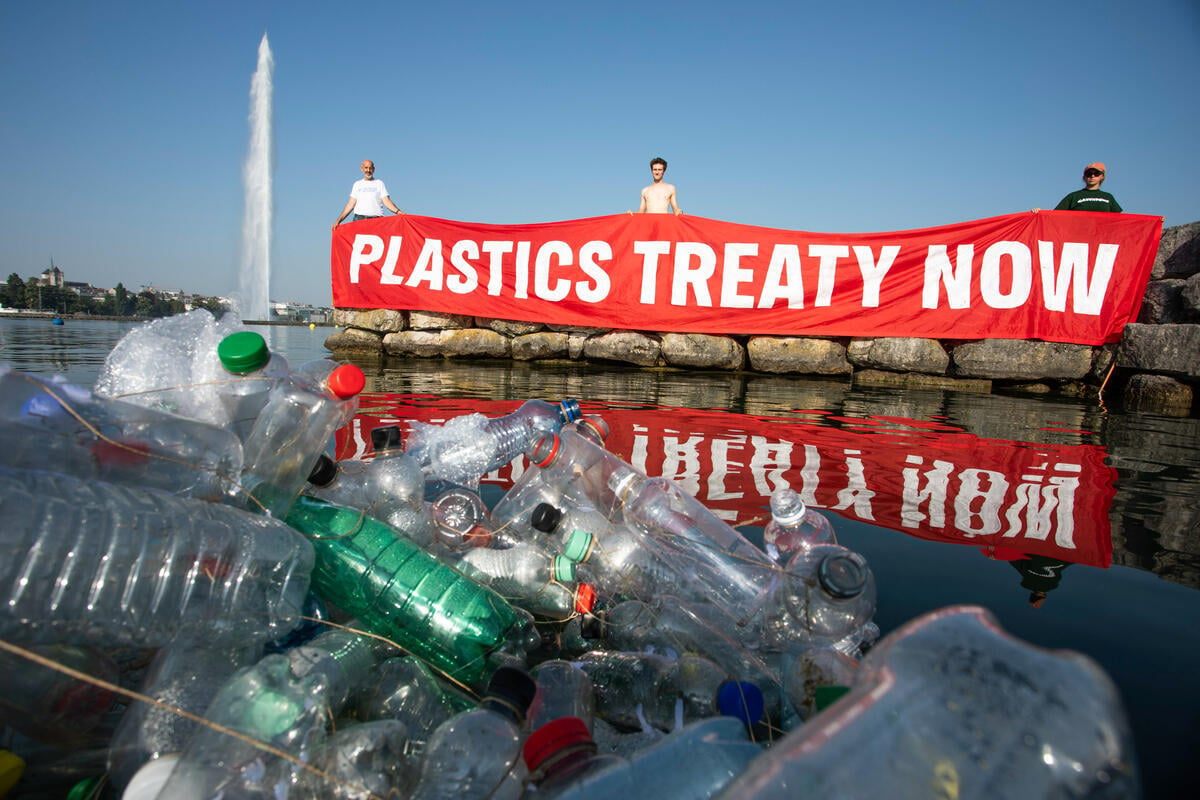A new Greenpeace Germany report shows that Detoxing fashion supply chains is a game changer but without regulation climate damage by the industry continues.

Ten years after Greenpeace launched its Detox My Fashion campaign, securing pledges from 29 leading brands to eliminate hazardous chemicals, with some also committing to tackle over-production by “slowing the flow and closing the loop”, Greenpeace Germany did an unannounced check to see if brands are still serious about their commitments.
The progress on eliminating hazardous chemicals is mostly positive and is game changing, showing that concerted action and transparency in supply chains is the key to industry transformation, but this success is limited to these brands which are taking action. In contrast, examples of slowing the flow of new clothes are thin on the ground, and despite positive signs from some, such as Benneton and Esprit, most efforts are directed at recycling, which remains more of a myth than reality.
To solve this problem, Greenpeace calls on regulators to build on the model of corporate supply chain responsibility demonstrated by the Detox committed brands and apply it to the entire fashion sector.
Download the Greenpeace Germany report:
- Self regulation: a fashion fairytale – Part 1: Progress of Detox committed brands on hazardous chemicals and slowing the flow/closing the loop
- Self regulation: a fashion fairytale – Part 2: Evaluation of Detox Committed brands, 2021 – the ten-year milestone. This document includes further details about the assessment that was done, both on the progress made in implementing Detox Commitments, and on initiatives that have been taken to meet the commitments to slow the flow and close the loop. These initiatives have been rated and presented graphically for each of the brands.



